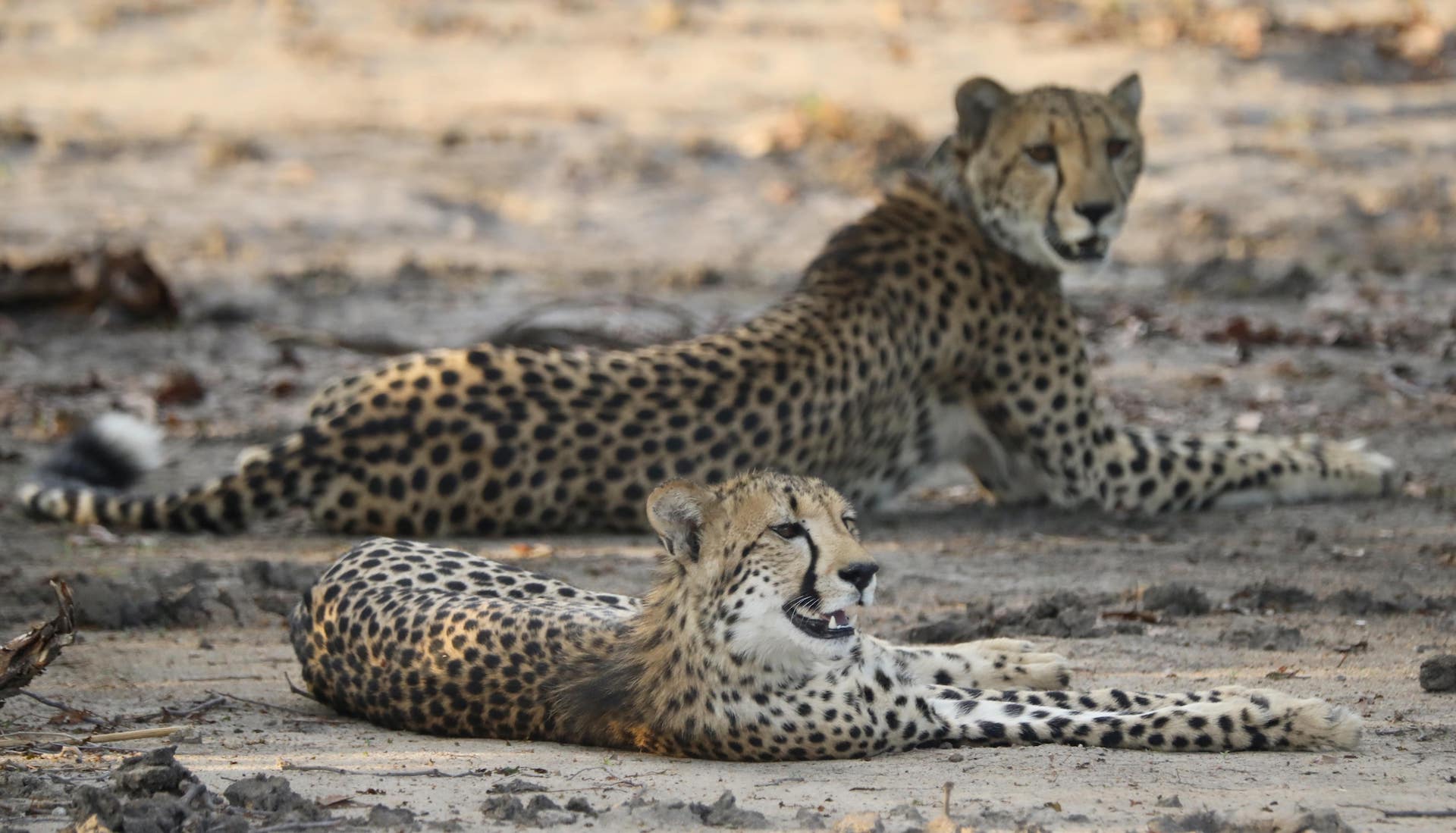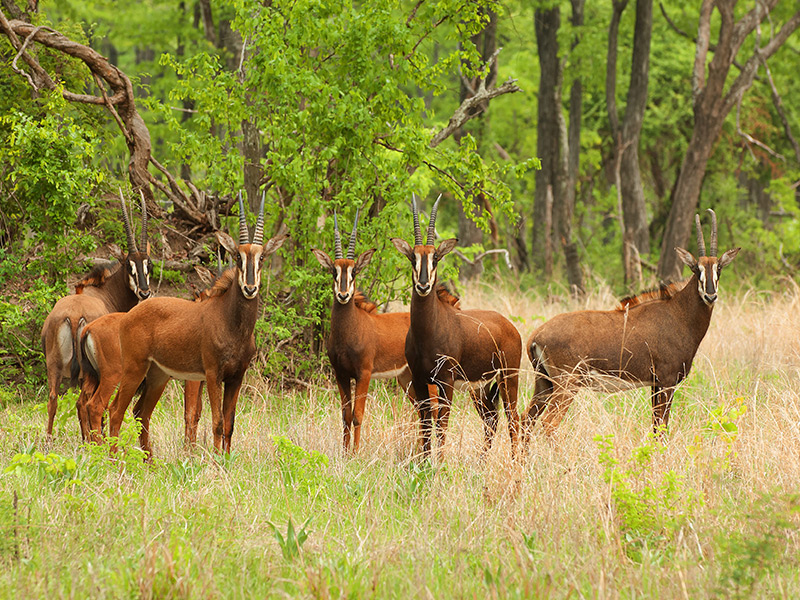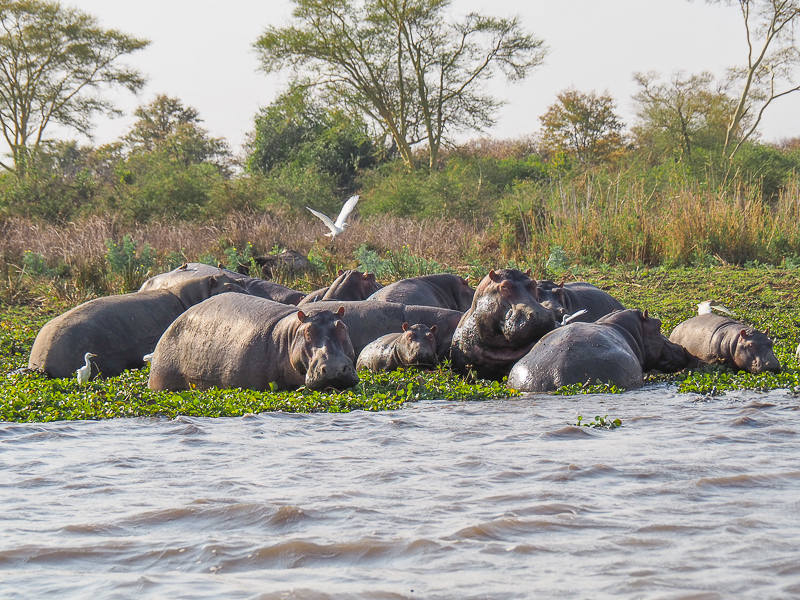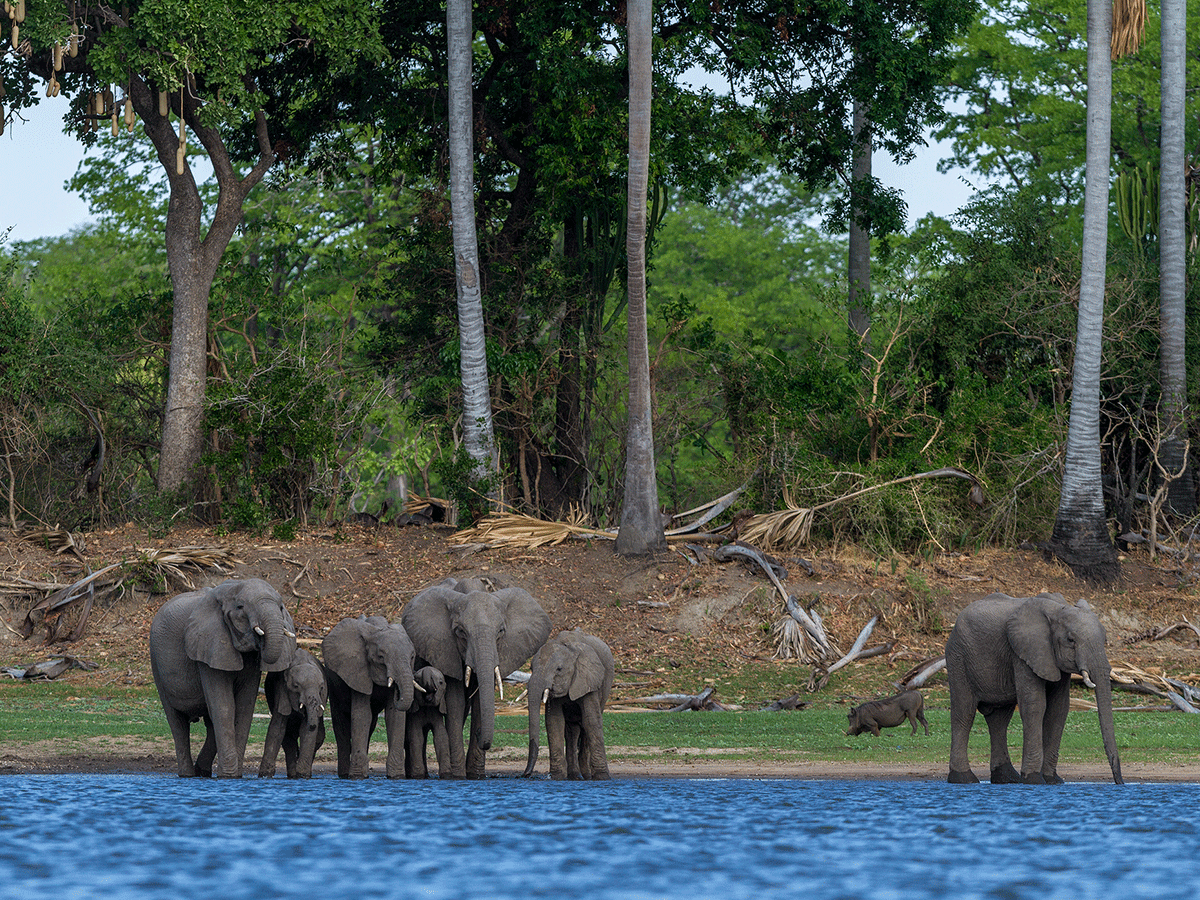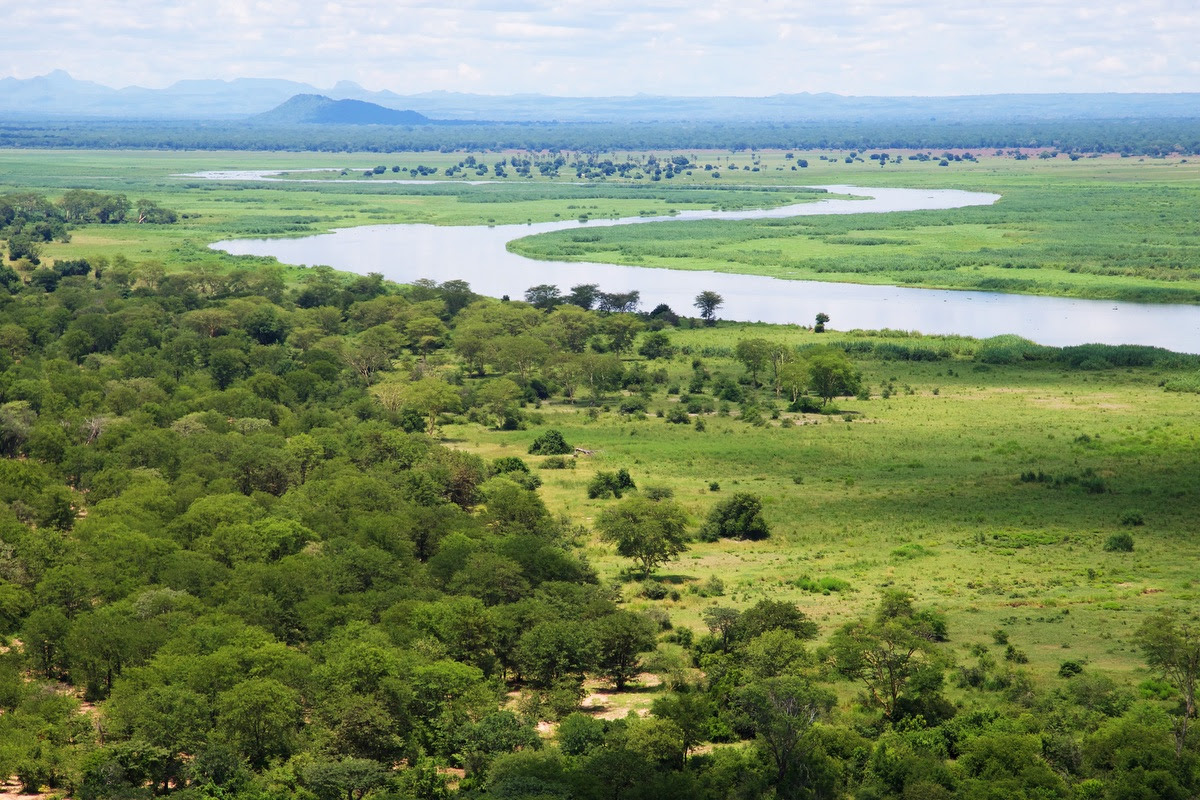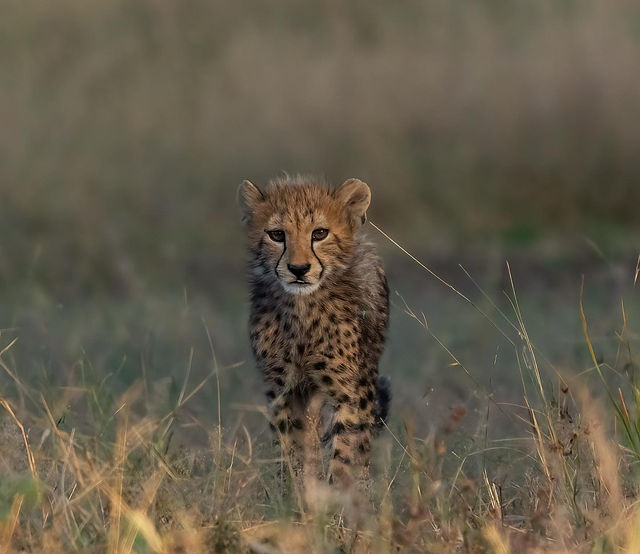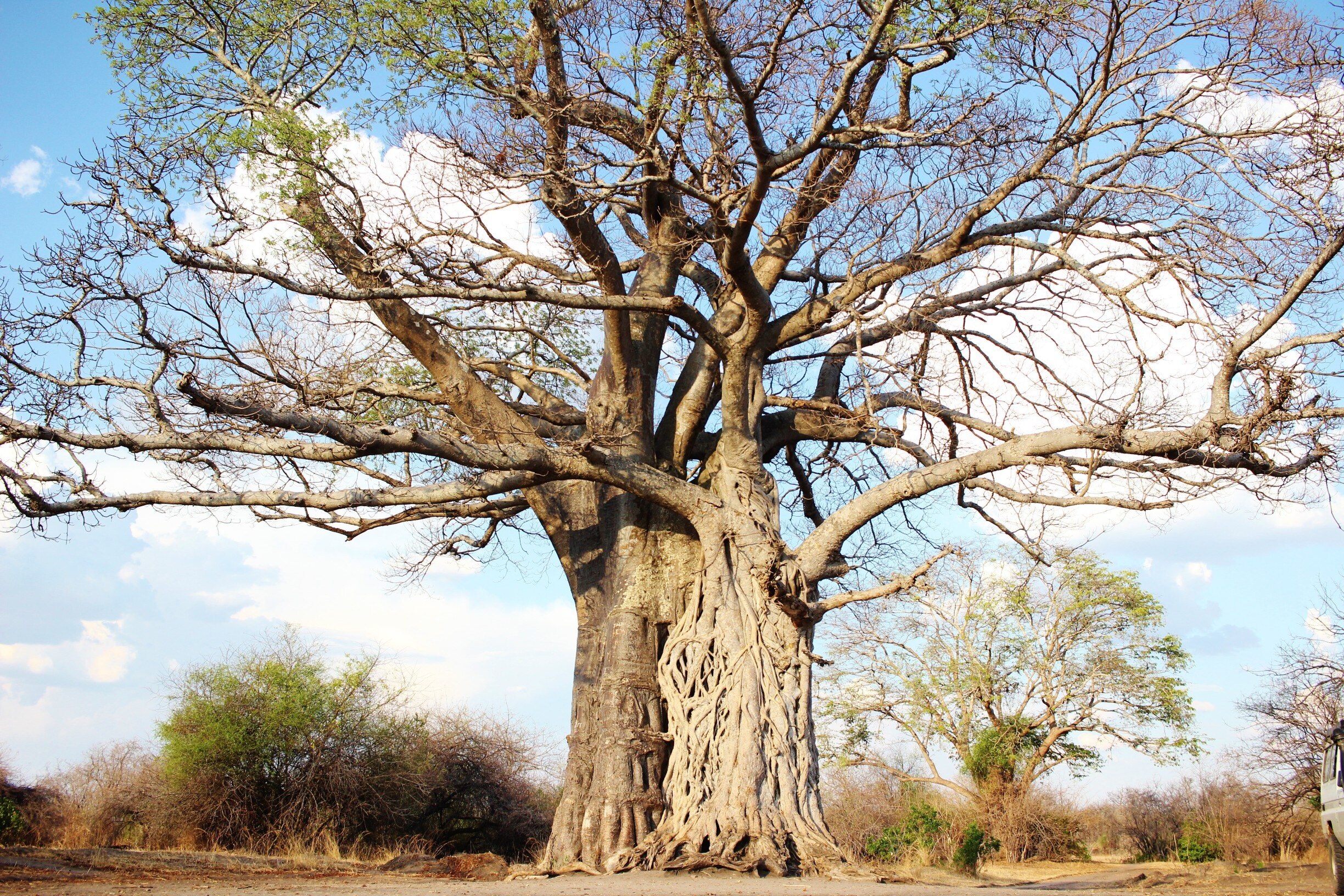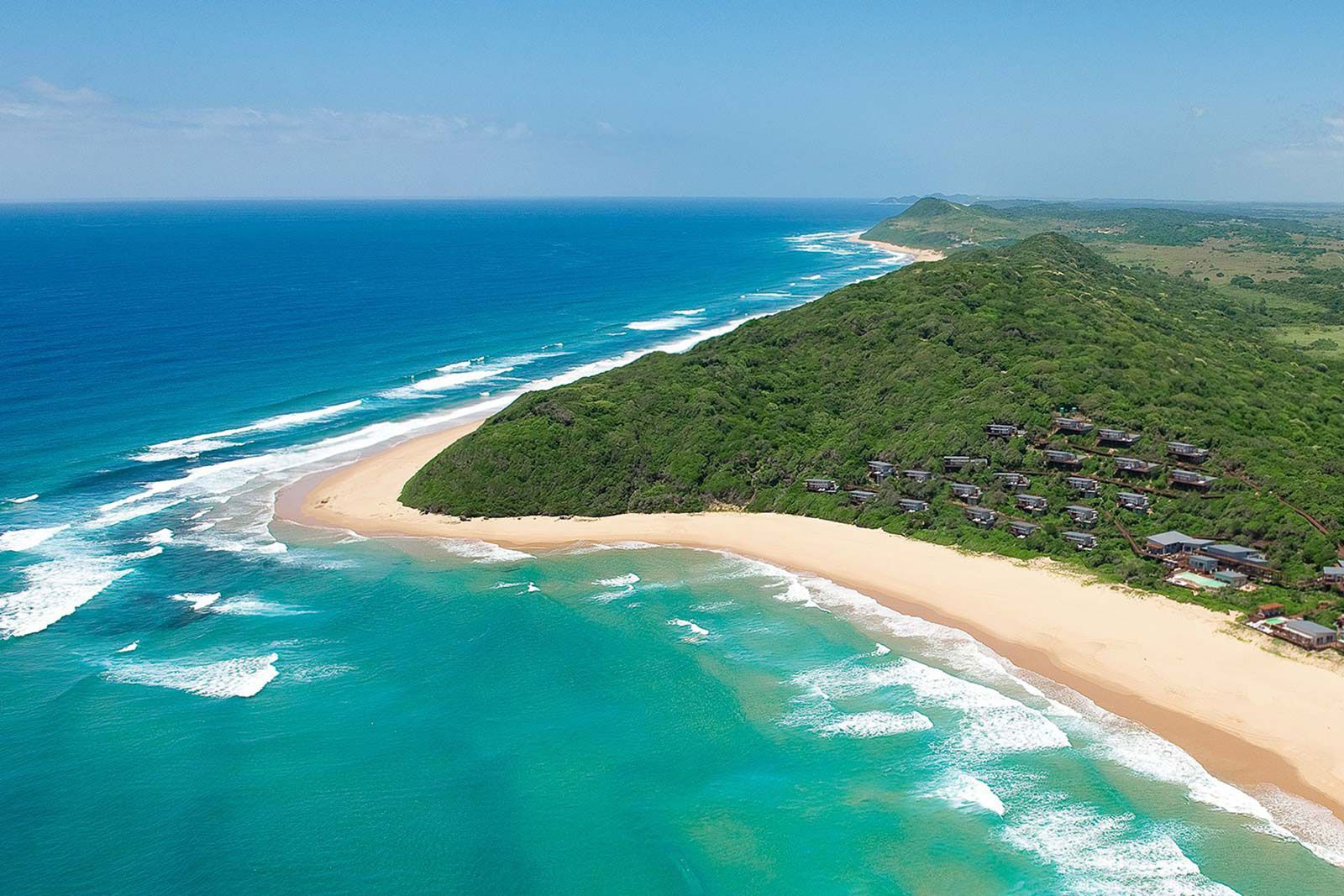Views Of Liwonde National Park
About
location:
Southern Region, Malawi
Liwonde National Park is a stunning and diverse landscape. The park is made up of a mixture of savannah, marshes, and woodlands, which are home to a wide variety of wildlife. The park is also home to the Shire River, which is a major tributary of the Zambezi River.
The river flows through the park, and is a popular spot for hippos, crocodiles, and fish eagles. The river is also home to many different species of fish, including tigerfish and catfish.
Another thing that sets Liwonde National Park apart from other national parks is its history. The park was originally established as a hunting reserve in the early 1900s, and was used as a royal hunting ground for the King of England.
Later, it was designated as a protected area and opened to the public. Today, the park is managed by the Malawian government and is a popular destination for tourists from all over the world.
In addition to its wildlife and history, Liwonde National Park is also known for its stunning views. The park is surrounded by the Rift Valley, which gives the landscape a dramatic and rugged appearance.
The park is also home to several waterfalls, including the Likhubula Falls, which are located in the southern part of the park. These falls are a popular spot for swimming and picnics.
Things to know before travelling to Liwonde National Park
This article is a tip of the iceberg but will equip you with the "Absolute Need to Knows" for Liwonde National Park.
How to get there?
Liwonde National Park is located about 100 miles south of the capital city of Lilongwe. The best way to get there is by car or bus.
If you're coming from outside of Malawi, you'll need to fly into either the Kamuzu International Airport in Lilongwe or Chileka International Airport in Blantyre. From there, you can rent a car or take public transportation to the park.
If you're renting a car, the drive from Lilongwe to Liwonde National Park will take about 3 hours. The drive from Blantyre will take about 2.5 hours. From Lilongwe, you can take the M1 road south to the town of Balaka. From there, you'll need to take a left turn onto the M8 road, which will take you directly to the park.
If you're coming from Blantyre, you can take the M1 road north to Balaka and then follow the same directions. Keep in mind that the roads in Malawi can be rough, so a four-wheel-drive vehicle is recommended.
Public transportation is also available, but it's less reliable and can be crowded. There are buses that run from Lilongwe and Blantyre to Balaka, and then you can take a minibus from Balaka to the park.
About the weather
The weather in Liwonde National Park is tropical and humid. The dry season lasts from May to October, and the wet season lasts from November to April. During the dry season, temperatures can reach up to 30 degrees Celsius (86 degrees Fahrenheit), and it's usually sunny.
During the wet season, temperatures are a bit cooler, and there's a higher chance of rain. The park is lush and green during the wet season, while the wildlife is more active during the dry season.
Medical matters that affect your visit.
When it comes to medical matters, there are a few things to keep in mind. First, Liwonde National Park is located in a malaria zone, so it's important to take anti-malarial medication and use mosquito repellent.
Second, it's also important to get vaccinated for hepatitis A and typhoid before your trip. Be sure to bring plenty of sunscreen and a hat, as the sun can be intense in the park.
Here are a few more specific medical matters to keep in mind:
- Be sure to bring a basic first aid kit, including items like bandages, gauze, and antiseptic cream.
- Be aware of the symptoms of heat exhaustion, such as dizziness, headache, and nausea.
- If you're planning on hiking, be aware of the risk of dehydration and sunstroke.
- Tsetse flies can be found in the park, and they can carry diseases like sleeping sickness and African trypanosomiasis.
- If you're hiking or camping, be aware of the risk of ticks, which can carry diseases like Lyme disease and Rocky Mountain spotted fever.
- Snake bites are also a possibility in the park, so be aware of the symptoms and seek medical help if you're bitten.
- Lastly, be aware of the risk of intestinal parasites, which can be picked up by drinking contaminated water or eating contaminated food.
About The Locals
The people who live in and around Liwonde National Park are called the Chewa people. They are a friendly and welcoming group, and many of them work in the park as guides, camp staff, or in other roles.
The Chewa people are known for their colorful traditional dress, which often includes bright patterns and headdresses. They are also known for their love of music and dance, and you may have the opportunity to see traditional music and dance performances while in the park.
Cultural etiquettes at Liwonde National Park
When visiting Liwonde National Park in Malawi, it is important to be mindful of the local culture and to respect the customs of the people who live in the area. For example, it is considered impolite to point with the index finger, and visitors should instead use their entire hand when gesturing.
Additionally, it is customary to greet others with a handshake and to say "Muli bwanji" (which means "How are you?" in the local language, Chichewa). It is also important to dress modestly, as revealing clothing is frowned upon.
Some other cultural etiquettes to be aware of include:
- It is considered rude to refuse an offer of food or drink, even if you are not hungry or thirsty.
- It is important to be patient, as time is not as strictly regulated in Malawi as it is in some other cultures.
- It is considered polite to bring a gift when visiting someone's home, such as a box of sweets or a bouquet of flowers.
- It is customary to address people with the appropriate honorific, such as "Mr." or "Mrs."
- Personal space is not as highly valued in Malawi as it is in some other cultures. It is not unusual for people to stand close together or to touch each other while speaking.
It is important to be respectful of these customs and to avoid any behaviors that could be perceived as rude or inappropriate. By following these cultural etiquettes, visitors to Liwonde National Park can create a more positive and respectful experience for themselves and for the local people.
Safety at Liwonde Natonal Park
Liwonde National Park is a generally safe place to visit, although there are a few safety concerns to be aware of. First, it is important to avoid approaching any wild animals, as they can be dangerous.
Secondly, it is important to be aware of the presence of hippos and crocodiles in the Shire River, and to avoid swimming or wading in the water. Third, there is a risk of malaria in the area, so it is important to take proper precautions, such as using insect repellent and taking anti-malarial medication.
Finally, it is important to follow the advice of park staff and to stay on the designated trails. By following these safety precautions, visitors can enjoy all that Liwonde National Park has to offer while minimizing the risk of harm to themselves or to the wildlife in the area.
Language and communication at Liwonde National Park
In Liwonde National Park, the most commonly spoken language is Chichewa, which is the official language of Malawi. However, English is also widely spoken in the park, as it is the country's official language of education and is used in many businesses.
Additionally, there are several smaller ethnic groups in the area, each with their own distinct languages. These include Lomwe, Yao, and Sena. Although most people in the area are bilingual or multilingual, visitors should be aware that English may not be the first language of everyone they encounter.
Vital Information on Money Matters
When it comes to money matters in Liwonde National Park, the official currency is the Malawian kwacha (MK). It's a good idea to have some kwacha with you before you arrive, as there are no ATMs or banks in the park.
Most hotels and camps in the park accept credit cards, but some smaller businesses only accept cash. Keep in mind that most places in the park don't accept foreign currency, so it's best to exchange your money into kwacha before you arrive.
Fun Things To Do At The Liwonde National Park
Elephant-back safari
For a truly unique experience, you can take an elephant-back safari through the park. You'll get to ride on the back of a trained elephant and get up close to wildlife like never before.
Sundowner cruise
Take a sunset cruise on the Shire River for a chance to see the sun setting over the park. You'll also get to enjoy a picnic on the river bank.
Hot air balloon ride
For a bird's-eye view of the park, you can take a hot air balloon ride over the savannah. This is the perfect way to see the park in all its glory. After your flight, you'll land for a traditional champagne breakfast in the bush. What a way to start the day!
Bird watching
With over 400 species of birds, Liwonde National Park is a bird-watcher's paradise. Be sure to bring your binoculars and a field guide.
Horseback riding
For a different perspective of the park, you can take a horseback riding tour. You'll get to ride through the savannah and spot wildlife from horseback.
Game drives
The park offers both morning and evening game drives, where you'll get to see wildlife like lions, elephants, and more.
Village visits
For a glimpse into the local culture, you can visit a nearby village. Here, you'll get to learn about the Chewa people and their way of life. You may even have the opportunity to participate in traditional dances or crafts.
Guided walks
If you want to explore the park on foot, you can take a guided walk with a knowledgeable guide. These walks are a great way to learn about the park's flora and fauna.
In conclusion, Liwonde National Park is a one-of-a-kind destination, offering a wide range of activities to suit all interests. Whether you're a nature lover, an adventurer, or simply looking to relax and take in the scenery, you'll find what you're looking for in Liwonde National Park.
Who can travel to Liwonde National Park?
Anyone is welcome to visit Liwonde National Park, though there are some things to keep in mind. First, visitors from certain countries may need to obtain a visa before traveling to Malawi. Second, the park is best suited for those who are comfortable with rustic conditions and can handle long drives on bumpy roads.
Third, the park is not suitable for young children or those with mobility issues, as the terrain is often uneven and there are no paved roads. All in all, Liwonde National Park is a wonderful destination for those who are adventurous and in good health.
Travel Documents
You will need a valid passport and visa to enter Malawi. Make sure your passport is valid for at least six months after your travel date and check if you need to obtain a visa before traveling.
What time of the year is best to visit?
The best time to visit Liwonde National Park is during the dry season, from May to October. During this time, the weather is warm and pleasant, and the roads are drivable. It's also the best time to spot wildlife, as the animals congregate around water sources.
However, if you don't mind the heat and humidity, the wet season (November to April) can be an equally rewarding time to visit. During this time, the park is lush and green, and the wildlife is also active. However it's also more difficult to access some areas of the park during this time due to muddy roads.
Packing Essentials For Your Trip
Comfortable clothes and shoes
Since the park is mostly unpaved, it's best to pack comfortable, lightweight clothes and shoes that can handle the terrain.
Sunscreen and hat
The sun can be intense, so be sure to pack sunscreen and a hat to protect yourself.
Insect repellent
With the presence of tsetse flies and other insects, insect repellent is a must.
First aid kit
It's always a good idea to pack a basic first aid kit in case of any minor injuries or illnesses.
Binoculars
A pair of binoculars is a must-have for any trip to Liwonde National Park. They'll help you get a closer look at the animals and the scenery, making your experience even more memorable. If you're a serious birdwatcher, you might even want to bring a bird field guide and a pair of binoculars with a wide field of view.
Reusable water bottle
Since the park is remote and there are few places to buy water, it's important to bring a reusable water bottle that you can fill up throughout the day.
A camera
With its diverse wildlife and stunning scenery, Liwonde National Park is a photographer's paradise. Don't forget to pack your camera or smartphone to capture the memories.
A Travel Journal
A travel journal is a great way to document your experiences and reflect on your time in the park. You can use it to jot down your thoughts, draw pictures, or even collect small souvenirs, like leaves, feathers, or flowers. This way, you'll have something to take home with you that will remind you of your time in Liwonde National Park.
Lastly, don't forget your sense of wonder and appreciation for nature. Liwonde National Park is truly a special place, and you'll want to take the time to soak in all it has to offer.
With the right gear and mindset, you're sure to have an amazing experience. So, pack your bags, get ready to explore, and make memories that will last a lifetime. Who knows, you may even find yourself wanting to come back again and again.
view map
Book Flight ticket
If this widget is not showing try reloading the page
The flight search result will be provided in a new tab
Lilongwe international airport will be a good destination if you are coming from outside Malawi
Book Hotel
If this widget is not showing try reloading the page
The hotel search result will be provided in a new tab
Input Mangochi, Malawi as the city name to search and compare hotel prices
You can book tours at hotels upon arrival.
